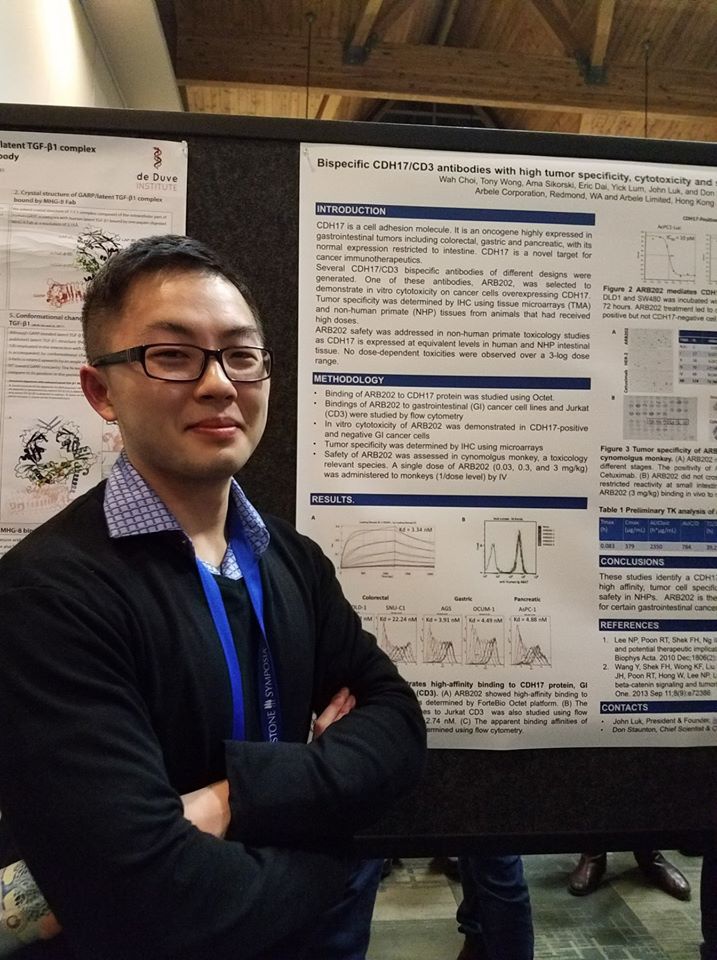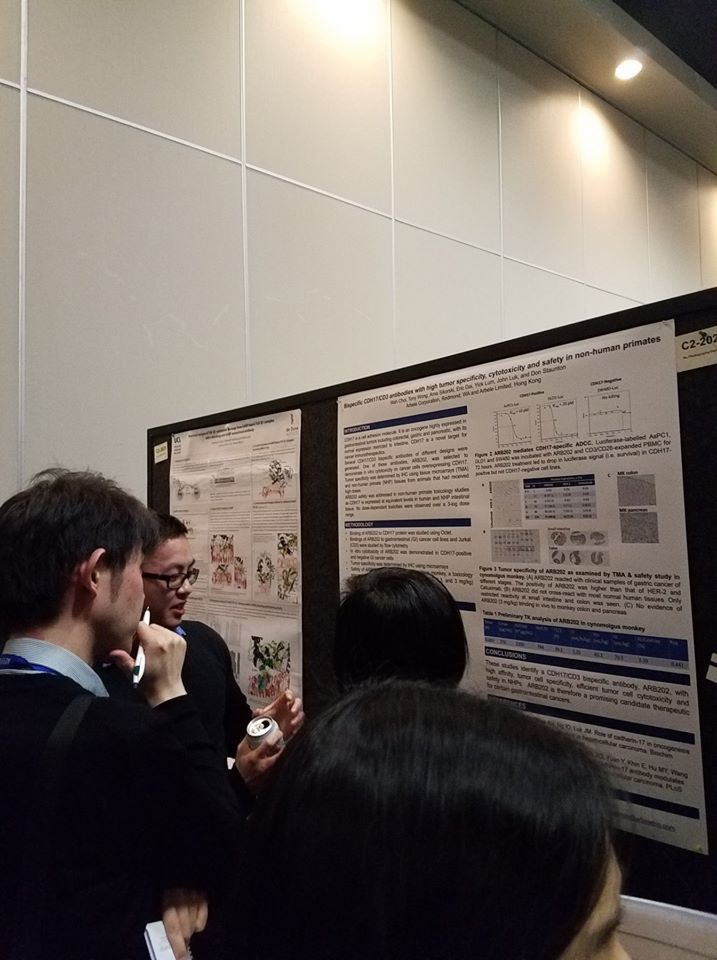Short-talk and Poster Presentations at Keystone Symposium on Cancer Immunotherapy, Whistler, Canada
10-03-2019
Cancer Immunotherapy: Mechanistic Insights to Improve Clinical Benefit (C2)
Organizer(s) Padmanee Sharma, Aviv Regev, Crystal L. Mackall and Kristen Hege
March 10—14, 2019
Whistler Conference Centre • Whistler, BC Canada
Summary of Meeting:
Cancer immunotherapy is an established field that has led to remarkable clinical benefit for a subset of patients. However, a deeper understanding of the mechanisms of response and resistance to current immunotherapy strategies is needed to help develop new treatments that will increase the number of patients who will benefit. This Keystone Symposia conference is focused on immunotherapy as a treatment for cancer, including potential combination therapies and development of new technologies to elucidate novel targets and/or biomarkers that will be used to design new treatments and enable appropriate patient selection to improve clinical outcomes for cancer patients. The conference will bring together leading and emerging scientists to advance the development of new immune-based treatments for cancer. Discussions will also consider the future directions of the field, including the identification of the most pressing unanswered questions, the areas needing more focus, and those that would benefit from new approaches and methodologies developed and used in other related fields.
Bispecific CDH17/CD3 antibodies with high tumor specificity, cytotoxicity and safety in non-human primates
Wah Choi, Tony Wong, Ama Sikorski, Eric Dai, Yick Lum, John Luk, and Don Staunton
Arbele Corporation, Redmond, WA and Arbele Limited , Hong Kong
CDH17 is a cell adhesion molecule and oncogene highly expressed in gastrointestinal tumors including colorectal, gastric and pancreatic. Normal expression of CDH17 is restricted to intestine. CDH17 is a novel target for cancer immunotherapeutics.
Several CDH17/CD3 bispecific antibodies of different designs were generated. Tumor specificity was determined by IHC using tissue microarrays and non-human primate (NHP) tissues from animals that had received high doses. Specificity in cytotoxicity assays was demonstrated using CDH17 positive and negative transfectants and colorectal, gastric and pancreatic tumor cells.
In addition, the activity of anti-CD3 CDR variants with different affinities for CD3 were compared to determine their impact on efficiency of tumor cell cytotoxicity, T cell activation and cytokine production.
A CDH17/CD3 bispecific, ARB202, was selected to demonstrate efficacy in mouse xenograft and PDX tumor models. ARB202 safety was addressed in non-human primate toxicology studies as CDH17 is expressed at equivalent levels in human and NHP intestinal tissue. No dose-dependent toxicities were observed over a 3-log dose range.
These studies identify a CDH17/CD3 bispecific antibody, ARB202, with high affinity, tumor cell specificity, efficient tumor cell cytotoxicity and safety in NHPs. ARB202 is therefore a promising candidate therapeutic for certain gastrointestinal cancers.
Monospecific and novel conditional dual-specific CDH17 CARs with high tumor specific killing activity
Tony Wong, Eric Dai, Ama Sikorski, John Luk, and Don Staunton
Arbele Corporation, Redmond, WA and Arbele Limited , Hong Kong
CDH17 is a cell adhesion molecule and oncogene highly expressed in gastrointestinal tumors including colorectal, gastric and pancreatic. Normal expression of CDH17 is restricted to intestine. CDH17 is a novel target for cancer immunotherapeutics.
Several monospecific and conditional dual CARs of different designs were generated and compared for their ability to specifically and potently kill CDH17 transfectants and colorectal, gastric and pancreatic tumor cells. The activity of novel CAR designs were compared to more established designs. Moreover transposon and RNA systems were developed. The data identifies an efficient novel CAR design with potential advantages to certain established CARs.
Different vectors and delivery systems were compared for efficiency of CDH17 CAR T and CAR NK production. A delivery system was selected for potential ex vivo or in vivo administration.
Certain CDH17 CARs were selected for efficacy determination in mouse xenograft and PDX tumor models.
These studies identify monospecific and conditional CARs targeting CDH17 with high tumor cell specificity and efficient tumor cell cytotoxicity. In addition, a delivery system was chosen with potential advantages relative to certain other established systems. A CDH17 CAR has been selected as a promising candidate therapeutic for certain gastrointestinal cancers.
Location: Seattle | Hong Kong | Guangzhou | Sydney | Singapore
Copyright©2023 Arbele All Rights Reserved.


